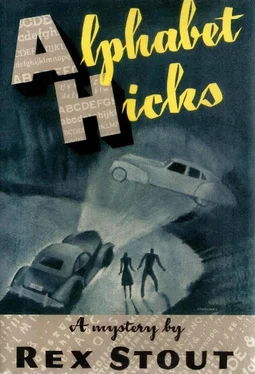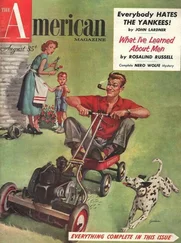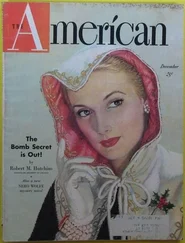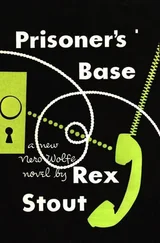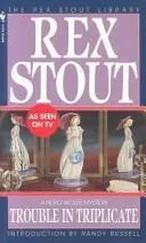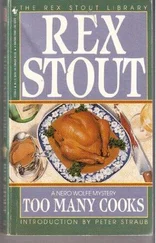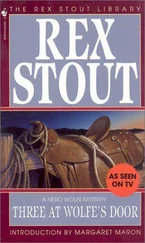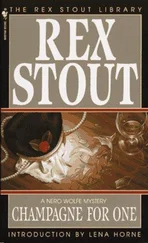“That you, Miss Gladd?”
Ross spoke in a low voice: “Tim? It’s Ross.”
But there was movement in the back seat, and Heather had the door open by the time the boy got there, and was asking, “What is it? Who is it?”
“It’s Tim Darby, Miss Gladd. I’ve got a message for you. Gee, it’s exciting. Only he said you’d be alone. Only of course Ross is all right.”
“A message?”
“Yeah, on the telephone. He said you’d be here in the car. Here, Mom wrote it down. It says you’re to meet him...”
Heather took the slip of paper, turned on the ceiling light, and peered at the penciled scrawl:
“Don’t drive past Dundee entrance. Go around by Route 11 to Crescent Road. Am in a car parked half mile beyond Crescent Farm. License JV 28. ABC.”
“Thank you, Tim,” Heather said, hardly aware that Ross’s fingers, reaching over from the front seat, were removing the paper from hers. “Thank you very much.”
“You’re welcome, Miss Gladd. Gee, it’s exciting. We’re not going to squeal. Mom says she won’t. I’ll wait here till you’re gone. If the cops come I won’t tell ’em where you went, no matter what they do. No matter if they torture me.”
“Attaboy, Tim,” Ross said. “We know we can count on you. It might be better if you’d go right back home and lay low. Then the cops won’t know anything about it. When did the message come?”
“Just now. Just a minute ago.”
Heather was back in the front seat, behind the steering wheel. She got a key from her coat pocket, inserted and turned it, and pushed the starter button. The engine roared and subsided. She turned her head to Ross:
“Give me that paper and get out. If you have the slightest remnant of manners... I can’t put you out. Will you get out?”
“Certainly not. You don’t even know who that message is from. Do you think it’s from Hicks?”
“Of course it is. It’s signed ABC. His name is Alphabet Hicks.”
“How did he get over to Crescent Road in a car? If he’s loose in a car, why didn’t he drive here?”
“I don’t know. Because it’s so close to the house. Will you get out?”
“I should say not. How did he know Darbys live there? How did he know to phone Darbys?”
“Because I told him their name.”
“When?”
“This evening. Before I left the house. Will you—”
“You said you were waiting for him here. Was this phone message prearranged?”
Heather pulled the gear lever to low. “I’m not going to sit here and argue,” she declared fiercely. “I’m going to remind you of something that I certainly didn’t think I would ever be forced to mention. You said you loved me. You know all the things you said. If you love me so darned much, prove it. Get out of this car!”
“That would be a fine way to prove it. A fine way!”
“You won’t?”
“No!”
Heather switched on the driving lights, let the clutch in, and rolled onto the road, turning left toward Katonah.
It was not a sociable ride, since not a word was spoken. From the Dundee entrance to Crescent Farm on Crescent Road it was only three miles by the direct route, but going around by Route 11 doubled the distance. Ordinarily Heather was a good driver, neither a crawler nor a crowder, but now she stammered and staggered along, slithering to the perimeter on curves, jerking the gas in, and when she met a car a little short of the turn onto Route 11 she went so wide she nearly slid into the ditch. She twisted her neck for a swift glance at her companion, but he didn’t even grunt. Two miles farther on came another right turn onto Crescent Road, which was little more than a lane as modern roads go. After a long rise over a hill and a gradual descent beyond, it wound through a wood, was in open country again for a stretch as it passed Crescent Farm, and then dipped into another wood, becoming so narrow that the branches of the trees made an overhead canopy for it...
Heather stamped on the brake so energetically that the car shivered in protest and dug its rubber into the dirt, then shifted to low and cautiously sidled over onto the bumpy roadside. Barely twenty feet ahead, also off the road, stood a large black sedan. Its lights were off, but Heather’s lights were bright on the license plate, JV 28. She pushed a knob on the dash, and everything was pitch dark, but Ross reached over and pulled the knob out again.
“Let there be light,” he muttered. “You wait here.”
He climbed out and started for the other car, from which there had been no sign of life, and Heather opened her door and slipped out and followed him. She was at his elbow as he glanced through the window and saw that the driver’s seat was empty; and so was the rear. As his head turned to her for a comment, she seized his arm convulsively, and, seeing her stare, he wheeled around. A man who had been concealed at the front of the car, presumably crouching there at the bumper, was now erect; and in the glare of the lights of their car his narrowed eyes, above his broad nose and thin mouth, were amazing like the eyes of a wary malevolent pig. A pistol in his hand was leveled straight at them.
Hicks stood in the upper hall frowning at space.
The conference with Dundee and his lawyer in Ross Dundee’s room, where he had just left them, had made no inroads upon the world’s available supply of cordiality. Dundee had been splenetic, the lawyer croaky and coldly suspicious, and Hicks himself somewhat trying. The result had been conspicuously negative. Hicks would have walked out on them much sooner, only he wanted to allow plenty of time for Heather to get out of the house and to the car before moving to join her.
Now it was desirable to make sure that she had left the house, and inadvisable to make any inquiries. He went to the door of her room and entered, glanced around, went out again, and proceeded downstairs. Strolling about, he found that most of the rooms below were populated, but exclusively by males. Having covered all the rest of the territory, he asked a man outside the side door to the living room:
“Who’s in there?”
“There are several people in there.”
“I mean of us victims. Brager?”
“No. He’s upstairs. Mrs. Powell is with the district attorney.”
“When he’s through with her I’d like to speak to him. I’ll be out on the terrace.”
Hicks moved toward the outer door, but because he moved with no particular haste and the other man did, he didn’t reach it. The man was there facing him, his back to the door, in an attitude that was unmistakable.
“You can wait right here,” the man said. “There’s a chair.”
“I prefer the terrace. I can manage, thanks. I’ve been opening doors alone all my life.”
The man shook his head. “Orders. You’re not to leave the house.”
“Whose orders?”
“Chief Beck’s.”
“A general order? Or does it apply only to me?”
“You I guess. That’s the way I got it.”
“And if I assert my constitutional right to locomotion in any desired direction?”
“If you mean go outdoors, you don’t. You get taken for a charge.”
“I see.” Hicks pursed his lips and stood a moment. “As you were.”
He turned and went back through the dining room to the kitchen. The man in the Palm Beach suit and battered Panama hat was seated by the table reading a magazine. Without speaking to him Hicks headed for the back door and was halfway there when the man spoke:
“Hold it, son. Not an exit.”
Hicks stopped. “Meaning?”
“You stay in the house.”
“Seriously?”
“Yeah.”
“For a nickel I’d test it.”
The man shook his head gloomily. “It wouldn’t do you any good. There’s a bellboy out there. This time they brought everything but the bearded lady. Listen, I hate to bother you so often, but I’ve got a kid in high school—”
Читать дальше
